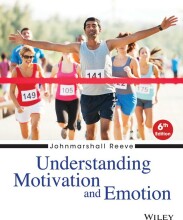Correlational designs
18 important questions on Correlational designs
What are correlational research questions about?
And possibly: conditional relationships.
What are design considerations with correlational designs?
- Sample (whom, where, unit of analysis?)
- How will you recruit participants?
- Operationalization?
Models to increase external validity are
- Random sampling for representativeness
2b. Deliberate sampling for maximal differences
3. Generalizing to modal instance (purposely sample for particular kinds of instances)
4. Replication
- Higher grades + faster learning
- Never study anything twice
- 100% sure, 100% understanding
What is a confouding variable?
How can we minimize the influence of extraneous variables ?
- Sampling (collect data from 1 industry)
- Measuring important extraneous variables (depends on your variables of interest) and then statistically controlling for them
How are you going to measure your variables? In correlational designs
- Tests (IQ test)
- Objective data
- Interviews
- Observations (team decision making)
- Questionnairs (most used)
When are interviews most usefull?
What are validity issues with observations?
- Construct validity
- Reactivity of participants to the observer
- Observational biases
- Internal validity (instrumentation)
- Observer drift
- Change the way they use there observation
What kind of observational biases are there?
- Selective attention: what do you attend to?
- Selective encoding: How do you interpret what you see?
- Selective memory: memory of what you saw?
- Interpersonal factors: whom do you attend to?
What are questionnaires advantages?
- Relatively simple
- Standardized
- You can examine large groups at the same time
- Efficient
- Anonymous
What are disadvantages of a questionnaire?
- Subjective
- Do respondents give honest/serious answers?
- Who answered questions?
- Do they understand the questions?
- Common method variance ( or mono-method bias).
- Non-response bias.
What is common-method variance?
If the same measurement is used for all than the correlation may be due to measurement method used.
What is the sources of common method variance?
What are shared biases?
- Social desirability
- Negative affect (negatieve ervaringen)
- Acquiescence (ergens mee eens zijn ongeacht de context)
- Illusory correlations ( raters assuming that certain items are related, and these assumptions may distort their responses)
- Halo bias (Rating someone similalry across different aspects of performance, als iemand goed is in het een zal hij ook wel goed zijn in het ander)
How do you determine if there is common method variance?
When does method variance show up?
What are separate measurements of the IV and DV?
- Psychologically
- Psychological separation by using a cover story to make it appear that the measurement of IV is not connected to the measurement of DV
- Temporally
- Time lag
- Proximally
- conditions of the IV are different than the DV
What are the two rotating item effects?
- Socrates-effect
- Do not rotate
The question on the page originate from the summary of the following study material:
- A unique study and practice tool
- Never study anything twice again
- Get the grades you hope for
- 100% sure, 100% understanding






























